The Rev. Jimmy Abbott
Nineteenth Sunday after Pentecost
October 20, 2019
Genesis 32:22-31
It was the defining moment in the history of our nation. It caused the rising and the falling of men and women whose names we still know. It was the end for six hundred and twenty thousand of us. It was the declaration of freedom for millions more. It was an ordeal by fire. At least, that’s how the Civil War historian, James McPherson put it. He goes on to say that though the Revolutionary War created the United States, it was the Civil War that determined what kind of nation it would be (James McPherson, “Ordeal by Fire: The Civil War and Reconstruction,” xxiii). This war, this crucible, this struggle, this ordeal by fire forged us into who we are. In that awful mess, we struggled with our conscience, our families, we struggled with God, we struggled with the Bible, we struggled with each other, and yes, we struggled with ourselves. But make no mistake, we still struggle with it today. The ordeal is not over. How do we deal with the memory of the war? And how do we deal with the memory of the memories? How do we continue to wrestle, to struggle with the fourteenth amendment? I think about my great-great-grandfather who probably helped burn Atlanta. I think about the fact that when I go to Galveston, I’m standing on a Civil War battlefield. Yes, the Civil War created us into who we are, but we still do not know entirely what that means. Think of it – anybody who has ever wanted to say anything important in American life has stood on the steps of the Lincoln Monument. Not Washington’s, not Jefferson’s, but Lincoln’s. Because that is the beating heart of our nation, the struggle that is our own. The struggle that birthed us.
Not on the banks of the Potomac River, but on the banks of another river, there was another struggle, but equally formative. Just as the Civil War was the comeuppance, the reckoning for our nation, Jacob struggles along the banks of the Jabbok as part of his own reckoning. Now, you’ve got to remember, Jacob was a trickster. He had swindled both his uncle and his brother. But he couldn’t get away with it for long. For now, on the banks of the Jabbok River, Jacob’s brother Esau is approaching with four hundred men, presumably armed. There is to be a reckoning.
That’s where our passage from today picks up. Jacob is waiting to meet his estranged brother, Esau, when suddenly Jacob is jumped by a strange man and a wrestling match begins. Now, a few other things to set up this passage. Remember, in the ancient world, rivers were mysterious things themselves. You know what they mean. After a heavy rain in Conroe the San Jacinto River takes on a life of its own. And rivers represented boundaries, not just between this tribe’s land and that tribe’s land, but between life and death, between order and chaos. Think of Jesus passing to the other side of the Jordan River to be tempted for forty days. And notice that Jacob stays on his side of the river, alone, on the far side of the Jabbok River. It is the other side that is the scene of this wrestling match.
Now we often hear that this was God wrestling with Jacob, but the text isn’t so clear. The Hebrew word for man used here, as in, “a man wrestled with Jacob,” is ambiguous. It could mean a dude, but it could also mean a god, or an angel, or a spirit, or even some evil presence. It could even be that the other man is just a manifestation of the guilt and shame Jacob struggles with for ripping off his family. But whoever or whatever it is, Jacob and this mysterious man-spirit wrestle. Jacob gets him in some sort of half nelson, but then the mysterious man-spirit strikes Jacob on the sciatic nerve. A struggle indeed.
Of course, this story doesn’t end with the struggle. No, out of this crucible, Jacob is reborn. The mysterious man-spirit renames Jacob, he is renamed, “Israel.” That is, “one who strives with God.” One who struggles, one who wrestles. And whenever somebody is renamed in the Bible after a struggle, it signifies that they are beginning a new part of their life. Abram becomes Abraham. Sarai becomes Sarah. Jacob becomes Israel. A new beginning.
It’s been a struggle, hasn’t it? Admit it, your life of faith has been a struggle. It’s not just me, is it? I have struggled with God, I have struggled with my own conscience. I have wrestled against my own ego, my own aspirations, my own memories. I’ve struggled with how to live, how to spend my money, how to raise my daughter in the Christian faith. Sometimes it does feel as if I’ve tried to put God into a half nelson and that God has struck me back. Not on my hip but on my heart. This struggle I’ve been on, this struggle with and against my faith in the Lord Jesus, I know, I know that it has made me new over and over and over again. I struggled in my call to the priesthood, but here I am. I struggled with my diagnosis as a diabetic, but that has made me stronger. I’ve struggled with my own anxieties, worries, and fears, and yet I know that God has been with me all along. The struggle I’ve had – against other Christians, against God, against myself – has not been the end of me but only a new beginning.
Think back on your own life. I would imagine that the most formative moments in your life of faith have not taken place on a sunny afternoon along the serene banks of a peaceful stream. No, your ordeal by fire, your crucible of faith took place in the dead of night, along a torrential, and chaotic Jabbok River of your soul. It felt as if you were totally alone and surprised by a mystery you had no idea was coming. You came to know Jesus when you hit rock bottom, when you had your last drink and wanted no more, when the police knocked on your door, when the doctor called you, when somebody told you “no” when all you wanted was “yes.” You have struggled. And in that moment you have found yourself at the foot of the cross.
And let’s be honest and admit it. This church has struggled. We’ve wrestled with God, with each other, with our own history, with our own hopes for the future. We’ve struggled against hurricanes and floods and deaths and job relocations.But out of that, we have become a new people. As if Spring Cypress Road is the Jabbok River, we have struggled here, and we have been remade here.
Look y’all, I promise I didn’t look ahead in the lectionary to come up with our pledge campaign theme, a New Beginning. It just happened that way. Or maybe God provided. Maybe God is teaching us that we have been through our ordeal by fire; and that we have a new beginning. Jacob becomes Israel. The cross leads to the empty tomb. We chose, we chose to do the hard thing, to wrestle with each other with plans for a new building. We chose to struggle with contractors and sub-contractors and architects and bankers, so many bankers. We struggle with God’s vision not only for this space but for our vision for ministry, for our mission. We continue to struggle with how to best serve the poor, to serve needy kids, to open wide our arms to a community that does not know God. We struggle with God’s vision for who we are and who we are to become. And now the dawn is breaking over the eastern horizon, this chapter of our struggle is over, and now we have a New Beginning.
Along those lines, I’m inviting Charlie and Teresa San Miguel to come forward to share some about our pledge campaign. They have seen just about all of what we’ve been through. Charlie served four years on our Vestry, and was renown among us for doing the grunt work – bylaws, articles of incorporation, and the audit. Teresa was one of the co-facilitators for Vacation Bible School this summer, a struggle in itself I’m sure.
So,
1. Who are you and why did you start coming to Holy Comforter?
2. Our theme for the pledge campaign is “New Beginning.” How do you see yourself as part of this new beginning?
3. Why do you support Holy Comforter financially?
Finally, brothers and sisters, do not fear the struggle. I know that it can be a struggle to think about your money, what you give. Yet it is through the struggle that you are born new again, it is through the struggle that we learn how to follow Jesus. So much of popular Christianity tells us that if only we love God, then our lives will be great. I tell you, that’s a lie. We will struggle with our souls, our bodies, our time, our money – we will struggle with all of it as we try, day by day, to follow Jesus. And when we follow Jesus, we pick up the cross. The cross is that monument, yes to suffering, but also as a symbol of your rebirth. Standing at the foot of the cross of Jesus you will see that it is a reminder of your struggle. And the cross is your new beginning.
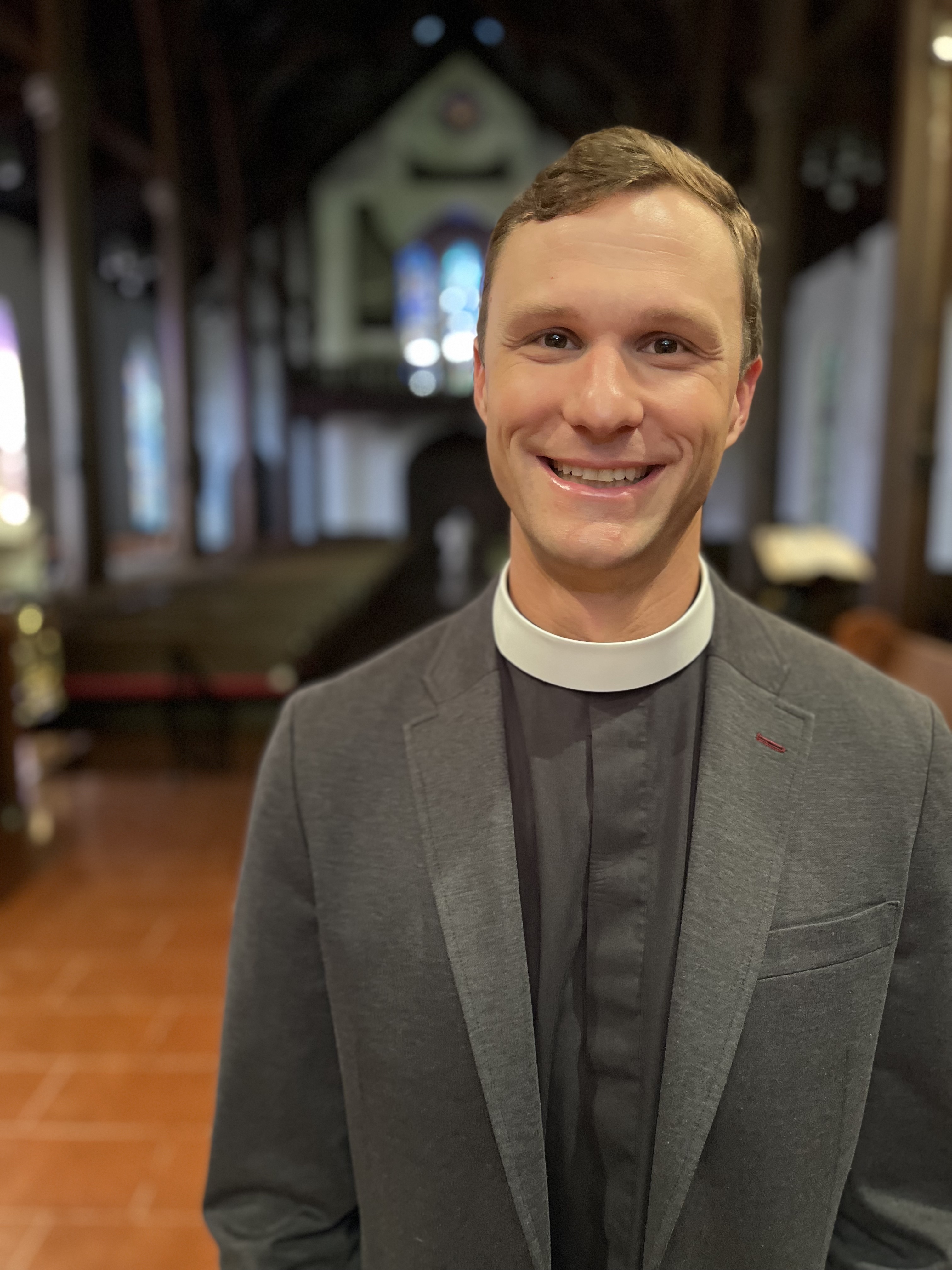

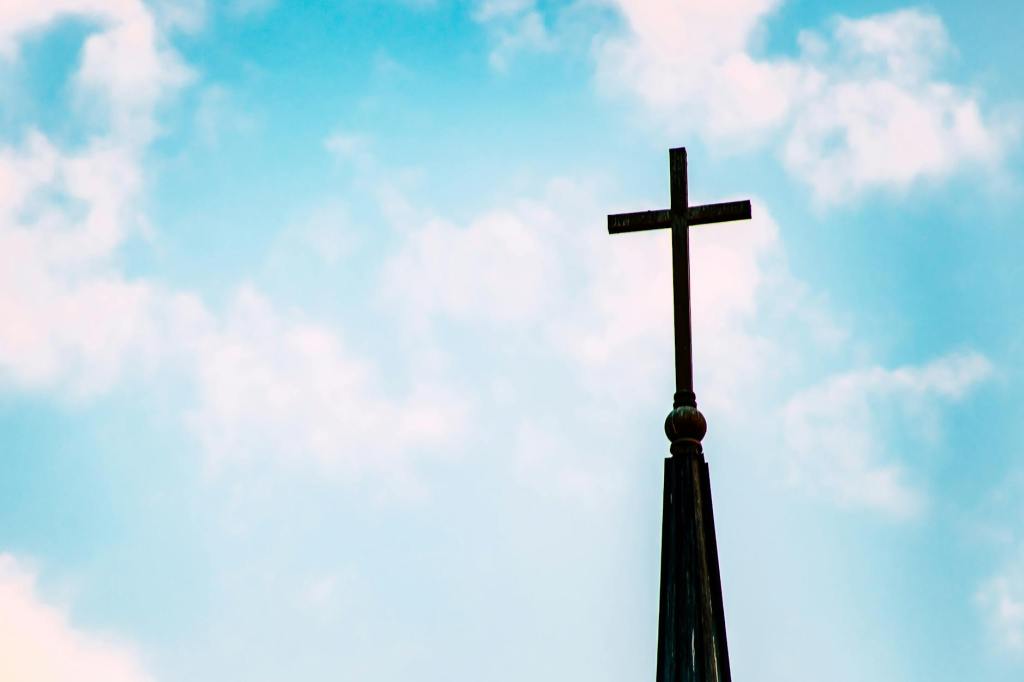
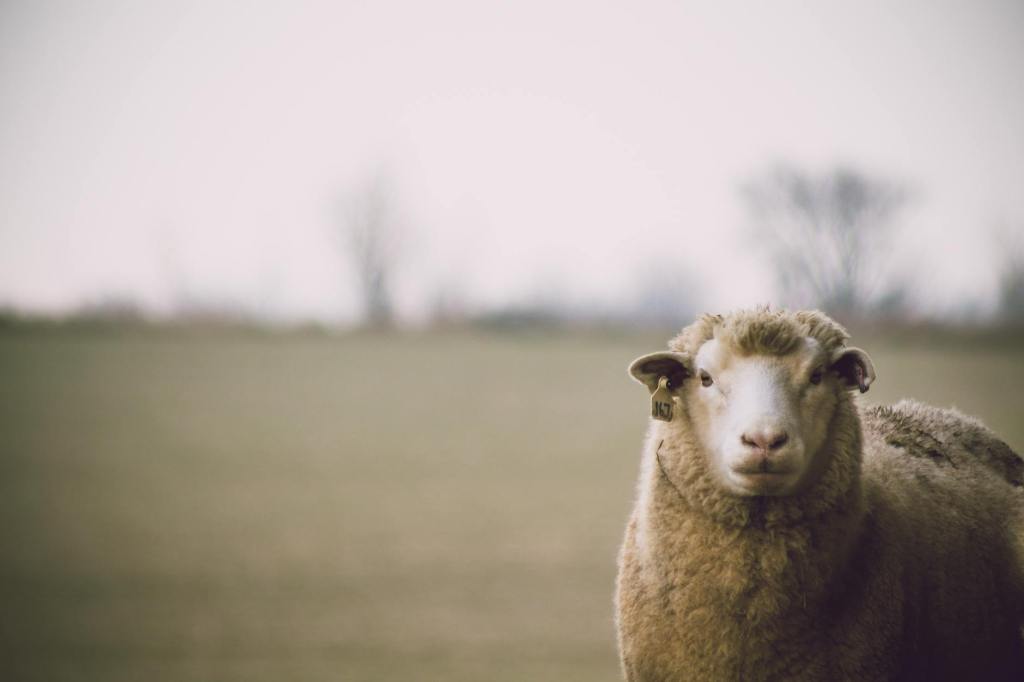
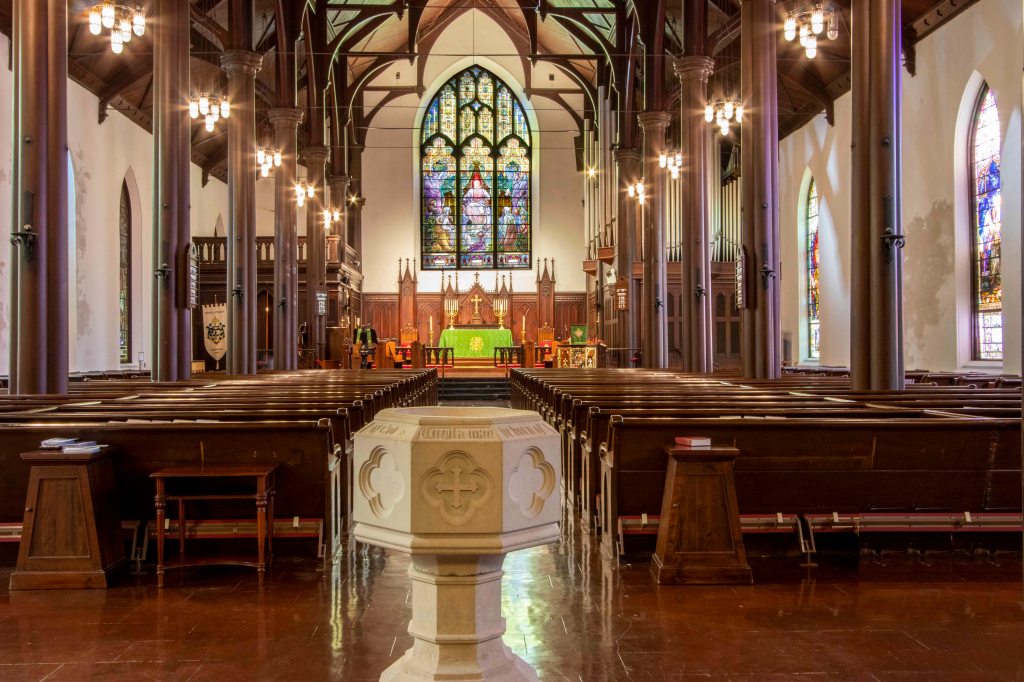
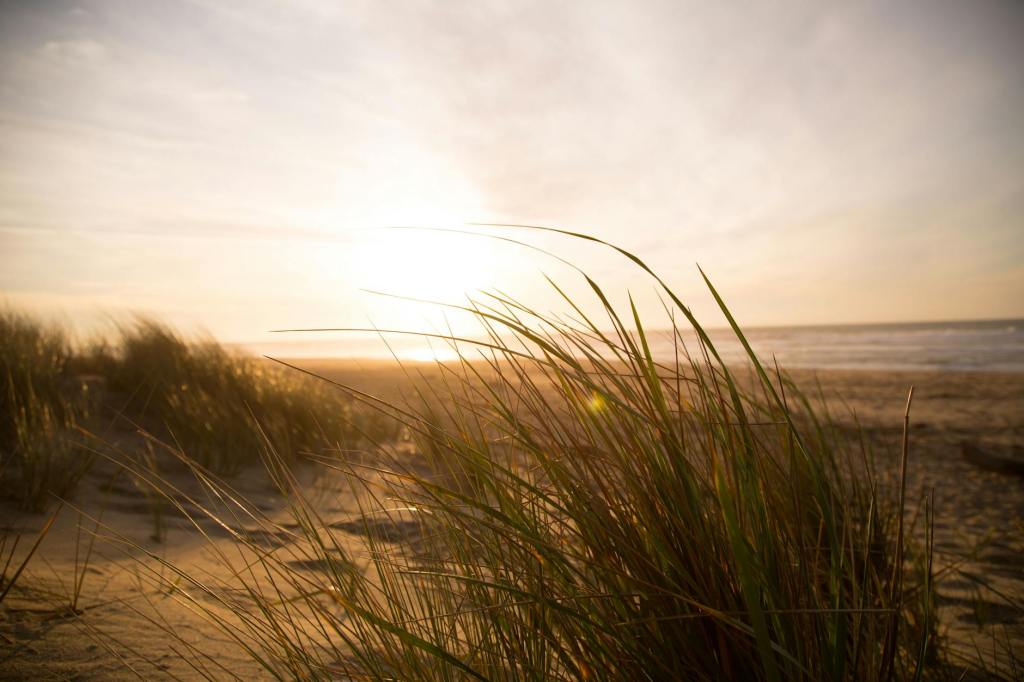
Leave a comment